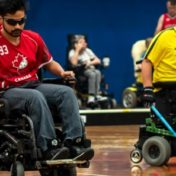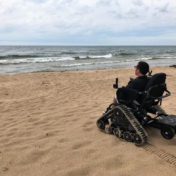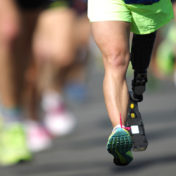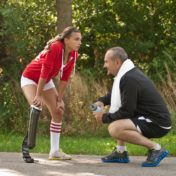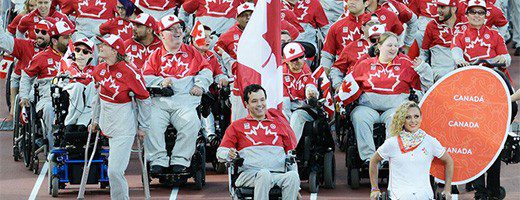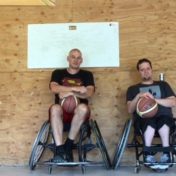Media coverage of the recent Paralympics in Tokyo drew popular attention to parasports, but significantly under-represented sports where athletes use powered mobility, such as boccia, powerchair soccer, and powerchair hockey. These sports make participation accessible for those who use power wheelchairs to compete. They do however challenge us to re-imagine elite athletic performance. Our partners Amy Latimer and Jordan Herbison… Read more »
In this research project, we use scenario planning to examine the extent to which disabled peoples’ issues are part of the consideration for resumption of travel. Ambiguous risks are those for which there are legitimate, competing and irreconcilable knowledge claims. Ambiguous risks currently manifest in discussions about tourism and persons with disabilities as a result of COVID-19.
A key issue for many people during the current restrictions is staying active when our usual activity outlets are closed. Our colleagues, Amy Latimer & Jenn Tomasone of the Sport & Exercise Research team, have launched a free, telephone-based program to help people with physical disabilities to stay active, entitled Get in Motion. The program provides evidence-based activity coaching to… Read more »
Recent research on sport participation has shown that >25% of athletes with a disability report negative experiences in sport, and a disproportionate number report being subjected to abuse and discrimination at the hands of organizers, coaches and other athletes. Our partners on the Sport & Exercise team, in collaboration with the Active Living Alliance for Canadians with a Disability, recently… Read more »
A story appeared in the national media in May, 2019 about a woman who was refused service at a discount grocery store because she couldn’t bag her own groceries. CDPA was struck by the communication failure on the part of staff and other patrons, and was prompted to share some of the wisdom gleaned from our partners. The article appeared… Read more »
We are pleased to announce a new project entitled: Seeking quality indicators in sport policy in Canada, funded partially by the Work-study program at Queen’s University and the Canadian Disability Participation Project. We will be working with: Dr. Amy Latimer of the Department of Kinesiology and Health Studies at Queen’s, Canada Research Chair in Disability and Physical Activity Mr. Atul… Read more »
We have now completed, and are proud to present, the third of three specialized policy scans corresponding to the research priorities of the Canadian Disability Participation Project. Policy Governing Sport and Exercise for People with Disabilities in Canada summarizes policy governing disability sport in 10 provincial, 3 territorial and the federal governments in Canada. The emphasis of the federal government… Read more »
On April 5th, 2016, Kathleen Martin-Ginis’ op-ed, entitled We need data on physical activity among people with disabilities, was published in the Hamilton Spectator. In it, Kathleen makes a passionate appeal for good quality data upon which to base evidence-informed policy for people with disabilities. The op-ed (short for “opposite the editorial page”) is a brief, timely, accessible communication contributed… Read more »
The Accessibility for Ontarians with Disabilities Act (AODA) was enacted in 2005 to ensure an accessible society for people with disabilities by 2025, including both private and public businesses and organizations. How does the Act actually work, and what difference does it make in communities in Ontario? These questions motivated a small group of citizens in Thornbury, Ontario to seek… Read more »
During the summer of 2011, Max Beck of Easter Seals Canada worked with several partners from Queen’s University to conduct an online survey focused on the Access 2 Entertainment Program. The Access 2 Entertainment Card allows individuals with a disability to participate more fully in society by providing support persons with free admission to a variety of entertainment, culture and recreation facilities across… Read more »
